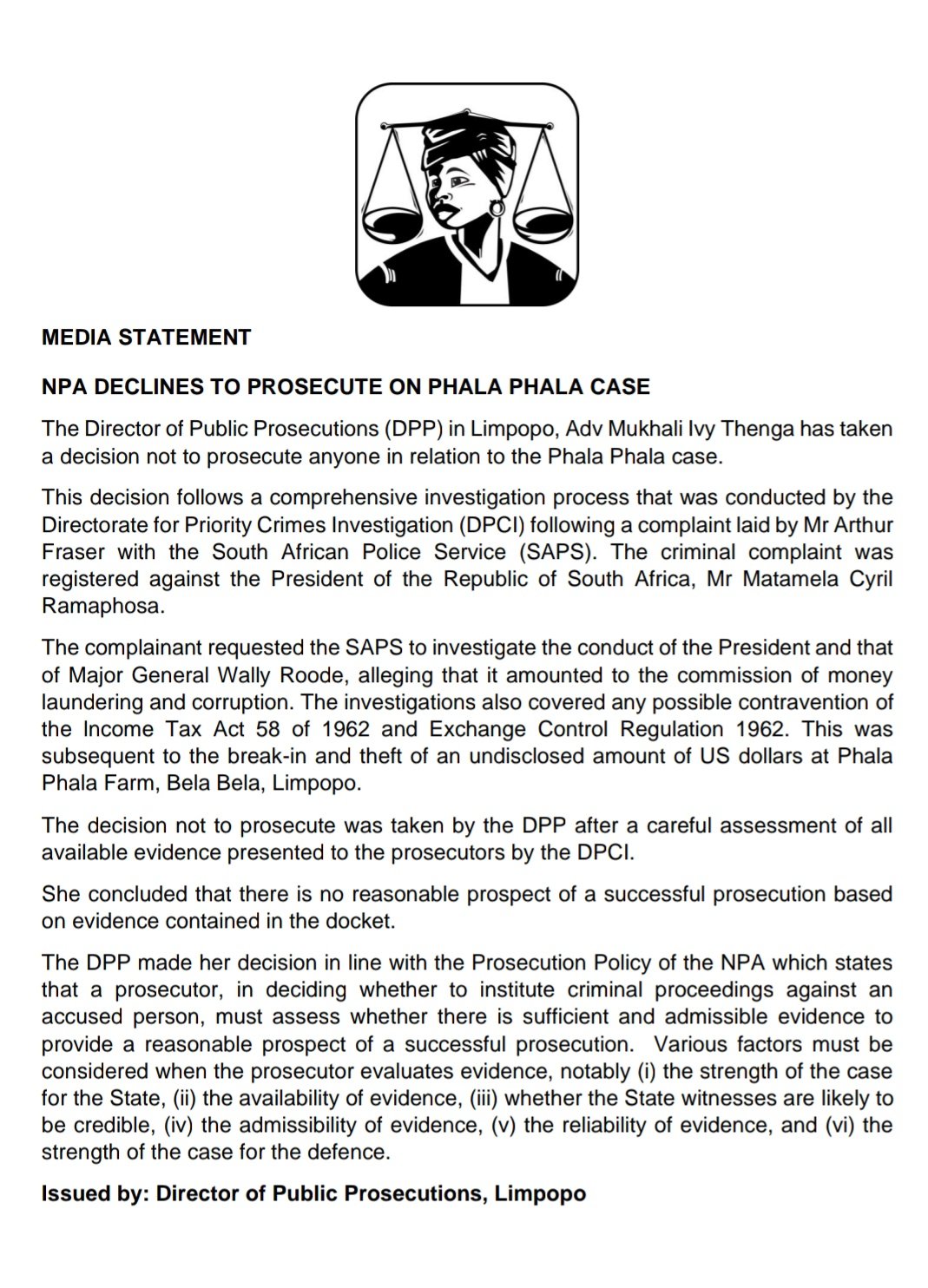The National Prosecuting Authority (NPA) has announced its decision not to pursue prosecution against individuals implicated in the Phala Phala case, which has sparked widespread reaction and debate. This development represents a significant turning point in the high-profile investigation that has captured the nation’s attention.
The Phala Phala case is centred on allegations of corruption and wrongdoing that pertain to the disappearance of millions of rands from the farm of President Cyril Ramaphosa in 2020. The incident prompted enquiries regarding the President’s knowledge and management of the situation, with some advocating for accountability and transparency. The NPA’s decision to refrain from prosecuting has been met with a mixture of relief and scepticism.

Critics contend that the NPA’s decision perpetuates a culture of impunity and undermines the rule of law. They maintain that the investigation’s conclusions justified prosecution and that dismissing the case conveys an inaccurate message regarding accountability. On the other hand, those who support the decision contend that the evidence was insufficient to secure convictions and that further investigation of the case would have been fruitless.
The NPA’s decision is expected to have significant implications for the struggle against corruption and South African politics. The Phala Phala case has become a symbol of the broader struggle for transparency and accountability as the country continues to confront ongoing corruption challenges. Although the NPA’s decision may provide some with a sense of finality, it is improbable that it will resolve the ongoing debate regarding the government’s dedication to corruption prevention. The case’s legacy will persist in influencing public discourse and informing calls for increased accountability from those in positions of authority.






















